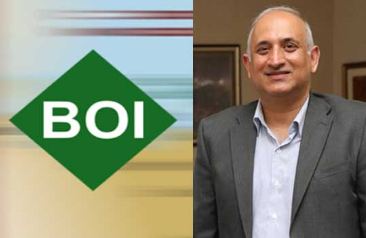ISLAMABAD, Jul 28 (APP):Former Minister of State, Board of Investment (BOI), Haroon Sharif has said that the only way forward for economic progress is to embrace a structural transformation prevailing in the economic system of the country through elite bargaining insulating the beneficiaries of the status quo with improved governance responding developing regional trends.
The former Chairman BOI explained that the country’s prevailing structure, modalities and tools to improve GDP demanded diversification in the market and business practices catering to the needs of both the regional nations and the local masses, Haroon Sharif stated that in a talk organised by Sustainable Development Policy Institute (SDPI).
“Elite bargain or political will is that elites of a country reconsider their models and bargain on shifting over new economic models and systems. We also need to include politicians and businessmen and beneficiaries of this system to change the structure,” Haroon Sharif said.
The second option is to succumb to the young population’s pressure either willingly or by force to change the system as for elite bargain other than the electorate pressure-based changes, and transformation mega steps are taken to change the ways of doing business like Taiwan, Vietnam and others did, he added.
“Asia’s successful examples of economic structure transformation including East Asia and Southeast Asia have been on governing the markets who had identified economic winners and supported them to deliver their economic goals. India’s three decades journey where it has reformed its economic structure and built up its private sector is evident. Pakistan has to start from somewhere,” he mentioned.
He said the country’s financial system is unable to support new development initiatives which is the job of the development banks and not the commercial banks. For instance, to promote the agriculture sector the government should revive ZTBL with the help of Chinese investors which is lying redundant through capital and experts.
He said the concept is to start agreeing on the winning sectors (economic sectors able to perform up to the mark) then financing those winners, and ultimately facilitating the cost of doing business for those sectors.
Sharif elaborated the transformational approach as a parallel system developed along the existing economic model on a fast-track basis. However, the political milieu for decades is merely limited to rhetoric denying change in the system, he added.
The former lead BOI underlined that the second approach is that the government should give space to the private sector as there is mostly market-oriented change in the system but the government in Pakistan is focused on government to government approach.
“We need an island of excellence to embrace this change as for a sustainable, viable and progressive economy, the country will have to change this system on a priority basis otherwise the existing system will crack with time,” he added.
At present, he said the country’s GDP is based on 58% services (trade, real estate, banking etc.), 20% each agriculture and industry. “For 30 years our state and industry, the economic structure has not changed whereas export enhancement tools have mostly relied on incentives. Our economic structure has to create economic opportunities for 3 million male and female youngsters, entering the job market every year, in the realms of small businesses and jobs”, he said.
He added that the country’s current structure has to increase by 15% of its exports every year whereas the cost of business is unsustainable and it has to shift over competitiveness and workout means to integrate itself into the knowledge economy of Asia over time.
“Our export boosting tool is incentives whereas fundamentally we had to support our comparative advantage sectors by shifting from protective industrial sectors,” he noted.
Haroon Sharif suggested that the prudent approach is that the elites should settle together and understand the global change and demographic dimensions and also take beneficiaries on board for a new system and avoid making it public to avert retaliation as political populism has been rejected by the electorates.
“Economic problems when resolved geopolitically by Pakistan have faced a failure. We need economic promotions based on mutual benefit as sans economic proportions, geopolitical proposals will not work in bilateral negotiations with regional players,” he said.
The connectivity infrastructure and region, he said, need to be made a multilateral place open for all as after better connectedness, its half a billion people’s market including China, Afghanistan and the Central Asian Republics (CARs).
The CPEC 2.0 should garner private capital and open the region for all as Western powers are not interested in venturing into it which shifts the scope of the trade route from bilateral to multilateral, he added.
“Pakistan is the only functioning market in comparison to West and Central Asia as we are a market economy. We need to expand our market economy in the region by rolling out our banking, insurance companies, diversified textile, automobile and heavy machinery industry in those countries with leadership to be given to private sector and not the bureaucracy for desired outcomes,” he suggested.
Private sector reorganization is important as the transformation required need bigger than Pakistan projects that showcase potential venues for regional countries to invest in Pakistan, he said.

















